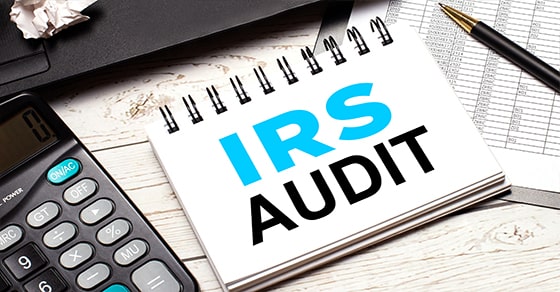
The IRS recently released its audit statistics for the 2022 fiscal year, and fewer taxpayers had their returns examined as compared with prior years. But even though a small percentage of returns are being chosen for audits these days, that will be little consolation if yours is one of them. Keep reading to learn how to survive an IRS audit.
Tax Return Statistics
Overall, just 0.49 percent of individual tax returns were audited in 2022. However, as in the past, those with higher incomes were audited at higher rates. For example, 8.5 percent of returns of taxpayers with adjusted gross incomes (AGIs) of $10 million or more were audited as of the end of FY 2022.
However, audits are expected to be on the rise in coming months because the Biden administration has made it a priority to go after high-income taxpayers who don’t pay what they legally owe. In any event, the IRS will examine thousands of returns this year. With proper planning, you may fare well even if you’re one of the unfortunate ones.
Be Ready
The easiest way to survive an IRS examination is to prepare in advance. On a regular basis, you should systematically maintain documentation — invoices, bills, canceled checks, receipts, or other proof — for all items reported on your tax returns.
Keep in mind that if you’re chosen, it’s possible you didn’t do anything wrong. Just because a return is selected for audit doesn’t mean that an error was made. Some returns are randomly selected based on statistical formulas. For example, IRS computers compare income and deductions on returns with what other taxpayers report. If an individual deducts a charitable contribution that’s significantly higher than what others with similar incomes report, the IRS may want to know why.
Returns can also be selected if they involve issues or transactions with other taxpayers who were previously selected for audit, such as business partners or investors.
The government generally has three years from when a tax return is filed to conduct an audit, and often the exam won’t begin until a year or more after you file a return.
Tax Return Complexity
The scope of an audit generally depends on whether it’s simple or complex. A return reflecting business or real estate income and expenses will obviously take longer to examine than a return with only salary income.
In FY 2022, most examinations (78.6 percent) were “correspondence audits” conducted by mail. The rest were face-to-face audits conducted at an IRS office or “field audits” at the taxpayers’ homes, businesses, or accountants’ offices.
Important: Even if you’re chosen, an IRS examination may be nothing to lose sleep over. In many cases, the IRS asks for proof of certain items and routinely “closes” the audit after the documentation is presented.
Ask the Professionals for Help
It’s prudent to have a tax professional represent you at an audit. A tax pro knows the issues that the IRS is likely to scrutinize and can prepare accordingly. In addition, a professional knows that in many instances IRS auditors will take a position (for example, to disallow certain deductions) even though courts and other guidance have expressed contrary opinions on the issues. Because pros can point to the proper authority, the IRS may be forced to concede on certain issues.
The Ramsay & Associates team is here to answer questions and help you better understand how to survive an IRS audit. Contact us if you receive an IRS audit letter or simply want to improve your recordkeeping.



